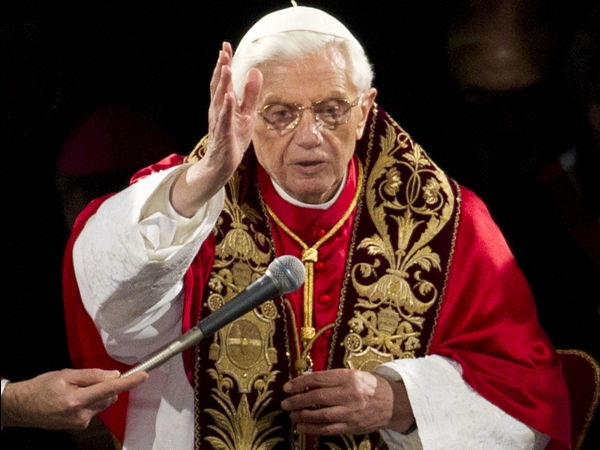Silence does not mean absence of communication. It is, rather, the other face of the word, which confers meaning on it, modulating the times of socialization, education and evangelization.
These are some of the reflections found in the Message for the 46th World Day of Social Communications, signed by Benedict XVI and published today, on the liturgical memorial of St. Francis de Sales, patron of journalists and communicators. The theme of the message is “Silence and Word: Path of Evangelization.”
The Message was presented this morning in the Vatican Press Office by Archbishop Claudio Celli, president of the Pontifical Council for Social Communications, and the other leaders of that dicastery.
Silence, explained Archbishop Celli, is not “lack of communication” but “part of the flow of messages and information that characterizes the new culture of communication.”
Silence “can express closeness, solidarity and care for others,” in addition to being a “strong way to express our respect and love for others.”
Silence is also a form of respect for the other, an “active attitude” that “gives room to the other to speak,” added the prelate.
Silent behavior “reinforces relationship, the bond between two persons,” it helps reflection and appreciation, gives “the correct meaning to communication” and helps us not to be submerged “in the volume of communication itself,” he continued.
Today’s culture, instead, entails the serious risk of “not listening to the other’s question and of trying to impose prefabricated answers.” In conversation, on the contrary, silence is fundamental in as much as it makes possible “inter-activity,” hence, a real search for truth.
VATICAN CITY, JAN. 24, 2012 (Zenit.org)





